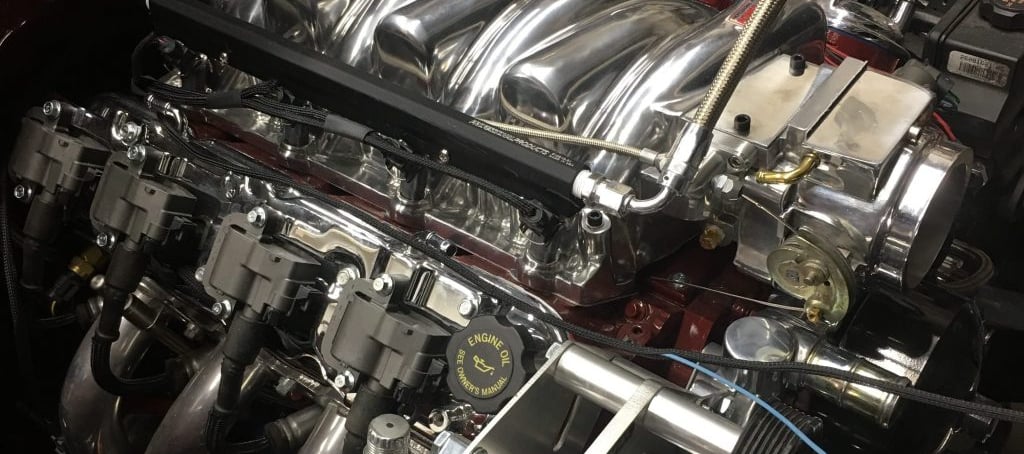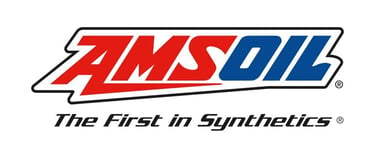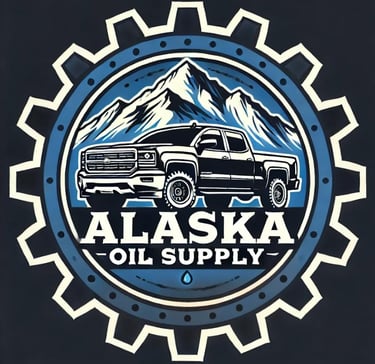VISIT THE AMSOIL ONLINE STORE
WHAT CAUSES ENGINE KNOCK: Causes, Prevention & Solutions
Engine knocking is a common but potentially serious issue can lead to extensive engine damage if not addressed promptly. In this article, we’ll break down what engine knocking is, what causes the engine to knock, and how you can prevent it by using the right oil, maintaining components like seals and gaskets, and staying informed about proper engine care.
If you’ve ever heard a strange pinging or knocking sound coming from your engine while driving, you might have encountered a phenomenon known as engine knocking. This common but potentially serious issue can lead to extensive engine damage if not addressed promptly. In this article, we’ll break down what engine knocking is, what causes the engine to knock, and how you can prevent it by using the right oil, maintaining components like seals and gaskets, and staying informed about proper engine care.
What Is Engine Knocking?
Engine knocking, also referred to as spark knock, is a sound that results from premature combustion of the air-fuel mixture in the engine's cylinder. Instead of the mixture igniting smoothly when the spark plug fires, it detonates at the wrong time, often too early. This causes a sharp knock or pinging noise.
Over time, repeated knocking can cause serious wear and tear to engine components, including pistons, cylinder walls, and connecting rods. Therefore, understanding the root causes and how to prevent knocking is vital for any vehicle owner.
What Causes Engine Knock?
Many factors can contribute to engine knocking. Below are the most common reasons to watch for:
1. Low-Octane Fuel
Using fuel with an octane rating too low for your engine can result in early combustion, leading to knocking.
2. Incorrect Air-Fuel Mixture
A lean mixture (too much air and not enough fuel) can cause the combustion process to become unstable, producing a knocking sound.
3. Carbon Deposits
Over time, carbon can build up on the cylinder walls and valves, decreasing the space for fuel-air combustion and raising the compression ratio, which increases the risk of knocking.
4. Bad Timing
If the spark plug fires at the wrong time—too early or too late—it can lead to inefficient combustion and knock.
5. Worn or Damaged Gaskets and Seals
Damaged gaskets and leaking seals can disrupt combustion by allowing fluids to enter places they shouldn’t, creating an environment prone to engine knock.
6. Engine Overheating
High temperatures can alter the ignition process, causing premature combustion.
Why Oil Matters in Preventing Engine Knock
Motor oil isn’t just about lubrication—it plays a vital role in engine temperature regulation and component protection. The type of oil you use can influence your engine’s efficiency and lifespan.
What Oil Should I Use for My Car?
Choosing the right oil involves several factors: your vehicle’s make and model, driving habits, and climate. For example, one commonly recommended oil is 5W30 oil.
5W30 oil is versatile and performs well in a wide temperature range.
It provides excellent lubrication at cold temperatures (the "5W" stands for winter), and its viscosity remains stable at higher temperatures.
For best results, consult your owner's manual or speak with a trusted mechanic when asking, what oil should I use for my car?
Using AMSOIL Inc in Preventing Engine Knock
If you're concerned about engine performance and knock prevention, high-quality synthetic oil makes a big difference. One of the top rated motor oil brands is AMSOIL.
Why Choose AMSOIL Inc?
Superior Lubrication: AMSOIL minimizes friction and heat—two major contributors to premature ignition and knocking.
Stable Viscosity: Even in extreme temperatures, AMSOIL maintains its properties.
Carbon Deposit Control: Quality additives reduce buildup that could lead to knocking.
Excellent Seal Protection: Helps maintain the integrity of engine seals and gaskets, reducing leaks and combustion issues.
AMSOIL 5W30: A Top Pick
AMSOIL 5W30 is a particularly popular choice due to its:
Multi-viscosity formula suitable for diverse climates
Advanced synthetic base oils for long-lasting protection
Detergent additives that clean engine internals
Wide availability as many vehicles require 5W30 oil (if you have a car or truck that takes another viscosity, AMSOIL will have the right one available as well, just click the button above).
Many drivers looking for AMSOIL products search for "amsoil near me" to find the closest distributor or service center offering this high-performance oil.
Spark Knock vs Engine Knock: What’s the Difference?
While often used interchangeably, spark knock is a more specific term within the broader category of engine knocking. It refers explicitly to knocking caused by premature ignition from the spark plug firing too early.
Both spark knock and general engine knock are signs of improper combustion. The key is identifying the root cause, whether it’s timing issues, fuel quality, or inadequate lubrication.
How to Prevent Engine Knock
Prevention is always better than cure—especially when dealing with your engine. Here are some essential steps you can take:
1. Use High-Quality Fuel
Stick to the octane rating recommended by your car’s manufacturer.
2. Stick With Top Rated Motor Oil
Choose brands like AMSOIL, such as AMSOIL 5W30 (for cars and trucks that use it) or another viscosity, to ensure optimal performance and engine protection.
3. Regular Oil Changes
Dirty oil can lead to overheating and deposits. Regular changes help maintain clean combustion.
4. Inspect and Replace Damaged Gaskets
Pay attention to signs of leaking or worn gaskets and seals. These components are essential for maintaining correct compression and fluid integrity.
5. Check Engine Timing
Have a mechanic verify your ignition timing, especially if your car is older or modified.
6. Clean or Replace Spark Plugs
Faulty spark plugs are often at the heart of spark knock. Make sure they’re gapped correctly and replaced as needed.
Diagnosing Engine Knock: What to Listen and Look For
You might be dealing with engine knock if you notice:
A metallic pinging or tapping noise when accelerating
Loss of power or sluggish acceleration
Increased fuel consumption
Engine overheating or warning lights
Knocking noise that gets louder with engine load
If any of these symptoms appear, don’t ignore them. Early diagnosis can save you from costly repairs.
Can Engine Knock Be Fixed?
Yes, and in many cases, the fix can be simple if caught early. Potential solutions include:
Switching to higher octane fuel
Changing to a premium oil like AMSOIL
Replacing spark plugs or ignition components
Repairing damaged gaskets and seals
Cleaning or decarbonizing the engine
However, if the knock has caused mechanical damage (e.g., cracked pistons or bent rods), a rebuild or engine replacement may be required.
Final Thoughts
Engine knocking is a symptom of a deeper combustion issue that can seriously affect your vehicle's performance and lifespan. Knowing what causes engine knock, keeping your engine components in top shape, and using the best oil—like AMSOIL—are key steps in prevention.
So the next time you're asking yourself, what oil should I use for my car, consider a high-performance synthetic by AMSOIL Inc. Not only is it one of the top rated motor oils, but it’s also designed to protect your engine against the factors that contribute to knocking.
Note: This article is the opinion of the writer. Please ensure you consult your equipment or vehicles owner manual or a qualified mechanic for further details concerning your specific needs.







